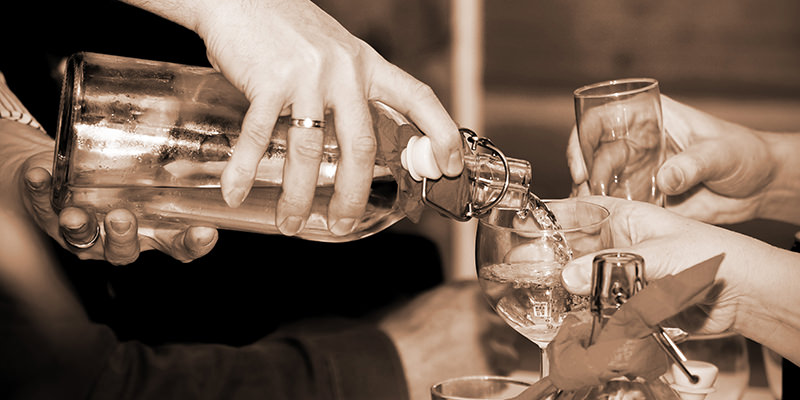Sometimes, after many losses, something good happens—med school acceptance, finding twenty bucks in the laundry, thinking it’s Monday when it’s Friday. Truly, no matter how small the victory, if it comes on the heels of calamity, we’re justifiably ready to celebrate. And celebrate with a vengeance: fill our homes with friends and strangers, empty our liquor cabinets, and consume every liquid intoxicant within arm’s reach in honor of the rare occasion of an actual, inviolable win.
Imagine doing this as a nation, after a major—as in worldwide—win. You’re Russia. A beleaguered republic, torn and frayed, starved by war, dictatorship, and forced collectivization. Beaten to core and soul like every other nation in the grips of World War II. Except today is May 9th, 1945, and the announcement comes over the radio: Germany’s surrendered, time to rejoice. And, oh, rejoice you do.
As the story goes, Russians were told of the German surrender sometime after 1am on May 9th, and they didn’t wait to celebrate. Citizens, many clad only in pajamas, immediately took to the streets and began a victory party that would last 22 hours, fueled by a combination of widespread national relief and, yes, copious vodka. In fact, Russians drank so much, the republic actually ran out of vodka. By May 10th, the war with Germany was most certainly over, and the hangover had set in.
Before you imagine millions of ruddy-cheeked citizens toasting each other shot after shot, remember that wartime Russia wasn’t flush with vodka. As elsewhere in the world, grain and starch sources were allocated for food production and infantry rations.
Not that vodka production stopped. Not in Russia. In fact, the Soviet budget and vodka had already developed a slightly tragic dependency. In his History of Russia, Walter Moss quotes Stalin as insisting the government “’directly and openly promote the greatest expansion of vodka production possible for the sake of a real and serious defense of our country.'” And in case you were wondering, yes, liquor for the sake of national defense only makes sense when the government has a state-run monopoly on the stuff.
Vodka was so integral to Stalin’s national strategy that even in times of widespread starvation, its production took precedence over food. “During the famine of the early 1930s,” writes Moss, “Stalin ensured that sufficient grain and potatoes were still available for vodka production, and vodka revenues in this period provided about one-fifth of government revenues.” You did not read that wrong. During a time of famine, essential foodstuffs were being used to produce enough vodka to supply 20% of the Soviet budget.
The only silver lining, if there can be said to be one—this meant vodka could remain in Russian daily life, such as it was. Soldiers were rationed 100 grams of vodka a day (called “the commissar’s ration,” about three and a half ounces), and citizens produced what amounts they could at home—given the grim state of things, a testament to the importance of vodka in Russian life. Which is why, among all the variations of international rejoicing that day, Russia was reasonably, justifiably thirsty on May 9th. If ever there was a time a country might drink itself dry, for Russians in the Soviet Union, VE-Day was it.
Spirits were so high, even non-drinkers got in on the party. In “Today I Learned,” a Redditor with the adorably macabre handle “I_Eat_Your_Pets” recounted a story his grandfather told him. “My grandfather was a soldier in the Soviet army during the war. To his death, he constantly reminded me, ‘The only day I was ever blackout drunk was May 9th, 1945. I woke up on the street hugging two loaves of bread.’”

